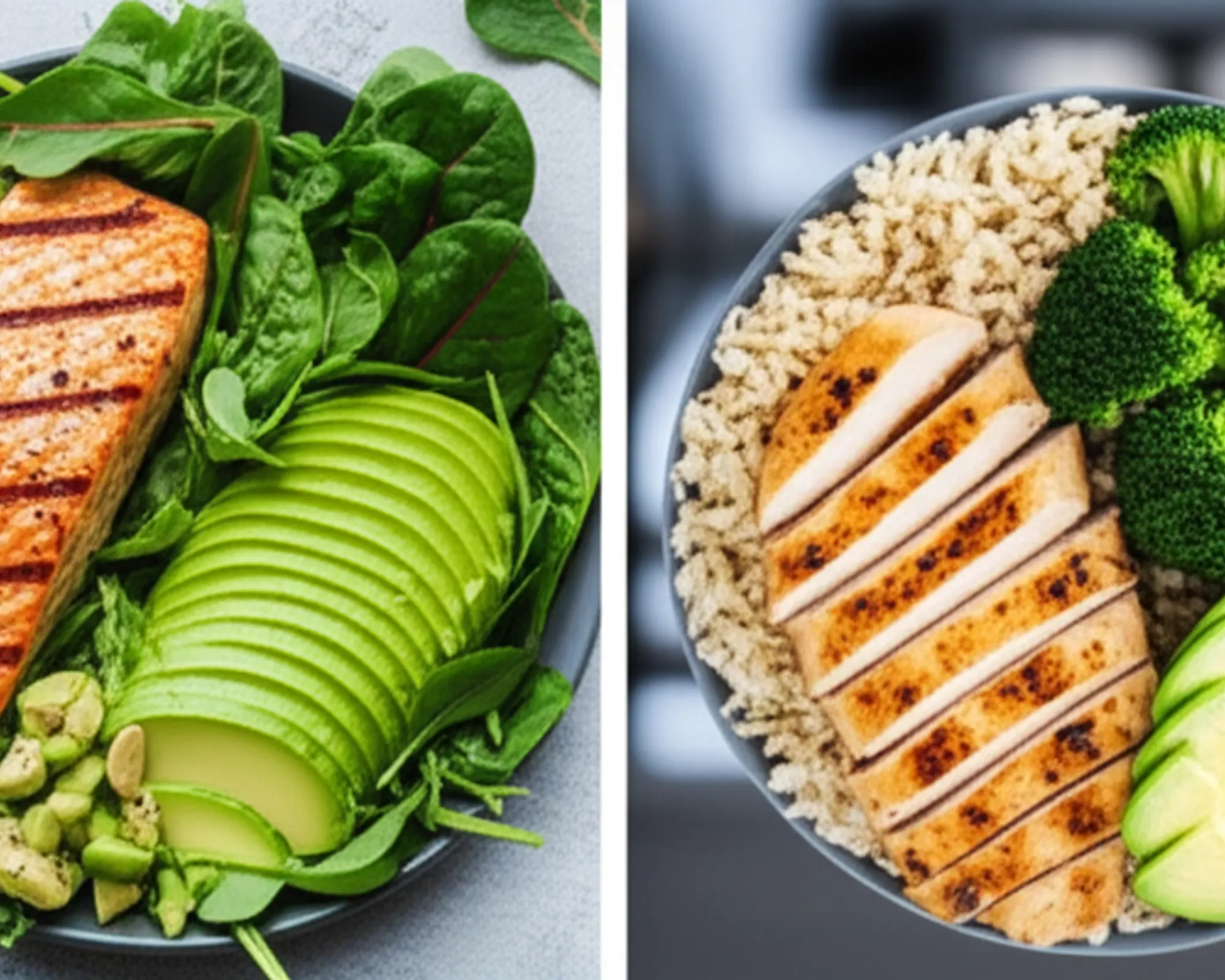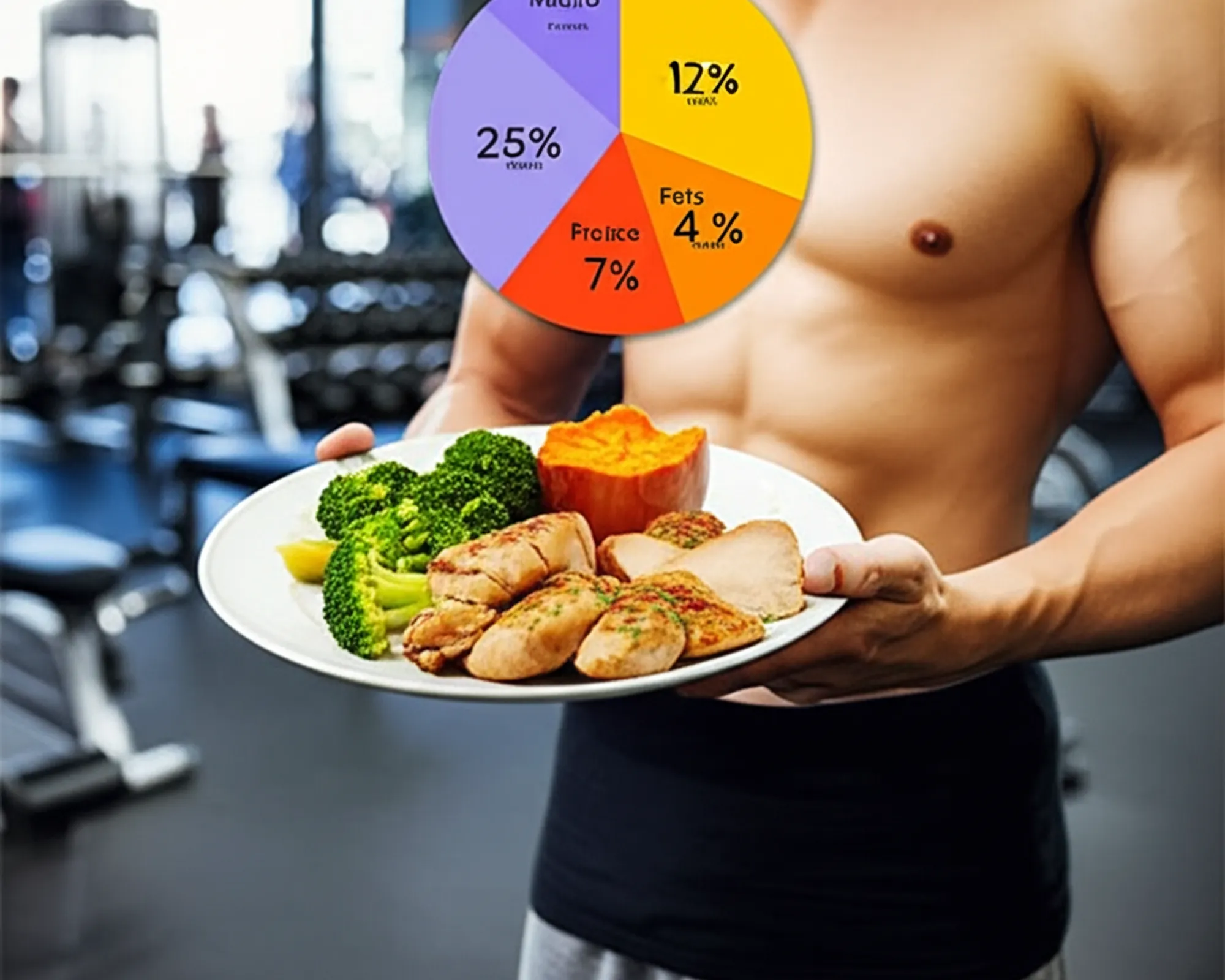How Much Protein Do You Really Need for Muscle Gain?

You hit the gym, lift heavy, and feel the burn. But are you truly optimizing your efforts for muscle growth? Beyond the reps and sets, one macronutrient stands paramount for building and repairing muscle tissue: protein. It's often debated, widely discussed, and sometimes misunderstood. The question isn't just "do I need protein?", but rather, "How much protein do you really need for muscle gain?" Let's cut through the noise and provide a comprehensive guide to fueling your physique.
The Undeniable Role of Protein in Muscle Hypertrophy
Think of protein as the building blocks of your body. Specifically, it's composed of amino acids, which are the essential components for repairing and synthesizing new muscle fibers. When you engage in resistance training, you create microscopic tears in your muscle tissue. Protein steps in to repair these tears, making the muscles stronger and larger in the process—a phenomenon known as muscle hypertrophy. Without adequate protein, your body struggles to recover, adapt, and grow, potentially leading to stagnation or even muscle loss, especially if you're in a caloric deficit.
Beyond muscle repair, protein is crucial for numerous other bodily functions, including hormone production, enzyme activity, and immune system support. However, for our discussion on muscle gain, its role in protein synthesis is the star of the show. Maximizing muscle protein synthesis (MPS) while minimizing muscle protein breakdown (MPB) is the fundamental equation for growth. Consistent, sufficient protein intake directly supports a positive net protein balance, which is vital for building a muscular physique.
Beyond the RDA: Tailoring Protein for Active Individuals
The Recommended Dietary Allowance (RDA) for protein for a sedentary adult is 0.8 grams per kilogram of body weight (g/kg). While this is sufficient to prevent deficiency, it's widely recognized by sports nutritionists and researchers that active individuals, especially those looking to gain muscle, require significantly more. Your protein needs are not static; they fluctuate based on your activity level, training intensity, body composition goals, age, and even your overall caloric intake.
For those engaged in resistance training, aiming for the RDA is simply not enough to optimize muscle growth. Your muscles are under constant stress and repair, demanding a higher supply of amino acids. Simply meeting basic health requirements won't yield the results you're striving for in the gym. The increased metabolic demands of intense training necessitate a more robust protein strategy to support recovery and adaptation. It's about shifting from preventing deficiency to optimizing performance and hypertrophy.
The Optimal Protein Range for Muscle Growth
So, what's the magic number? Research consistently points to a range that significantly exceeds the general RDA for individuals focused on muscle gain. Most studies suggest that an intake between 1.6 and 2.2 grams of protein per kilogram of body weight (or approximately 0.7 to 1.0 grams per pound of body weight) is optimal for maximizing muscle protein synthesis and facilitating muscle growth.
- 1.6-2.2 g/kg (0.7-1.0 g/lb) of body weight: This range provides ample amino acids to support recovery and muscle hypertrophy for most resistance-trained individuals.
- Higher intakes (2.3-3.1 g/kg for lean mass): If you're in a caloric deficit and aiming to preserve muscle mass while losing fat, even higher protein intakes might be beneficial to mitigate muscle loss. This is especially true for advanced athletes or those undergoing aggressive cutting phases.
Factors like your current body fat percentage also play a role. If you carry a significant amount of body fat, basing your protein intake on your lean body mass rather than total body weight might be more accurate, especially at the higher end of the spectrum. Age also matters; older adults may benefit from slightly higher protein intakes due to anabolic resistance, a phenomenon where muscles become less responsive to protein over time.
Timing, Distribution, and Sources: Maximizing Your Protein Intake
While the total daily protein intake is the most critical factor, how you distribute it throughout the day can also play a role in optimizing muscle protein synthesis. Instead of consuming a massive amount in one or two meals, aim to spread your protein intake relatively evenly across 3-5 meals. This provides a consistent supply of amino acids to your muscles, keeping MPS elevated throughout the day. Consuming 20-40 grams of protein per meal, depending on your total daily needs, is a good strategy.
What about pre- and post-workout protein? While the "anabolic window" (the short period immediately after a workout) was once thought to be critical, current research suggests that as long as your total daily protein intake is sufficient, the exact timing around your workout is less crucial than previously believed. However, consuming protein before or after your training session certainly doesn't hurt and can aid in recovery and reduce muscle soreness. Don't forget a slow-digesting protein like casein before bed, which can help support overnight muscle recovery.
When it comes to sources, prioritize whole, minimally processed foods. Excellent sources include:
- Animal-based: Lean meats (chicken breast, turkey, lean beef, pork), fish (salmon, tuna, cod), eggs, dairy products (Greek yogurt, cottage cheese, milk, whey protein). These are complete proteins, meaning they contain all nine essential amino acids.
- Plant-based: Legumes (lentils, beans, chickpeas), tofu, tempeh, edamame, quinoa, nuts, seeds, some vegetables (broccoli, spinach), and plant-based protein powders (pea, soy, rice). Vegetarians and vegans need to be mindful of combining different plant sources to ensure they get a complete amino acid profile throughout the day.
While supplements like whey, casein, or plant-based protein powders can be convenient tools to help you hit your daily protein targets, they should complement, not replace, a diet rich in whole food protein sources. Focus on food first, then use supplements as an aid.
Practical Tips and Common Pitfalls
Calculating your needs is the first step. If you weigh 70 kg and aim for 2.0 g/kg, you'd need 140 grams of protein daily. If you weigh 180 lbs and aim for 0.9 g/lb, you'd need 162 grams. Track your intake for a few days to get a realistic picture of where you stand. Apps can be incredibly helpful for this.
Common Pitfalls to Avoid:
- Under-eating protein: The most common mistake. Many people overestimate their protein intake.
- Over-reliance on supplements: While useful, they shouldn't be your primary source.
- Ignoring overall caloric intake: You need enough calories to support muscle growth (a slight surplus) alongside sufficient protein. If you're not eating enough total food, even high protein won't lead to optimal gains.
- Not listening to your body: Adjust your intake based on your recovery, hunger levels, and progress.
Conclusion: Consistency is King
Ultimately, the "real" amount of protein you need for muscle gain is a range, not a single fixed number, and it depends on your unique circumstances. However, aiming for 1.6 to 2.2 grams per kilogram of body weight is an excellent starting point for most individuals serious about building muscle. Prioritize whole food sources, distribute your intake throughout the day, and use supplements judiciously. Remember, consistency in your diet, alongside consistent and progressive training, is the ultimate recipe for unlocking your muscle-building potential. Fuel your body wisely, train hard, and watch your physique transform.


